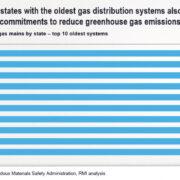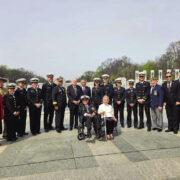Study shows AAPI voters hold progressive stance on key policy issues
LOS ANGELES – As populations and communities continue to increase, the influence of Asian Americans is steadily growing across the US. In the state of California, it is estimated that Asian Americans will make up nearly 11 percent of voters by the 2016 presidential election, and that number will continue to rise as both the electorate and national impact grow—which is exactly why your vote matters.
Asian Americans Advancing Justice-LA, the nation’s largest legal and civil rights organization for Asian Americans, Native Hawaiians, and Pacific Islanders, released a new report which shows the increasing numbers of Asian Americans who are registering to vote statewide. According to the report, nearly 1.7 million Asian Americans were registered to vote in California as of the 2012 General Election. Asian American voter registration also exceeded the margin of victory in 38 Congressional, State Senate, and State Assembly races during that election.
Broken down by ethnicity, voter turnout was pretty high among each group in 2012. Among the estimated 65 percent of Asian Americans who cast their ballots, 78 percent of voters were Japanese-American, 71 percent were Indian, 64 percent were Chinese, 60 percent were Vietnamese, and 68 percent were Filipino.
“As Asian American and Pacific Islander communities continue to grow, so does their ability to affect the outcome of elections,” said Dan Ichinose, the demographic research project director for Advancing Justice-LA. “Elected officials can no longer afford to ignore issues critical to our communities like immigration and health care reform.”
The report also found that many Asian Americans hold progressive positions on key policy issues. For instance, 67 percent of Asian Americans voted in favor of Proposition 30, the California ballot measure that approved temporary and targeted tax increases to prevent education budget cuts, in 2012. Over 72 percent also supported Deferred Action of Childhood Arrivals (DACA) policy which prevents the deportation of some undocumented youth. In addition, nearly 74 percent indicated their support for better language access to health care, showing government officials that the Asian American community cares about these issues and policies, and that they can no longer be ignored.
The fact is, Asian American voters do make a difference. With the excelling margin of victory and increase of registered voters during the last election,
Asian Americans have the power to make change on key issues that affect their communities.
“As empowered groups and responsible citizens, voting is our fundamental right,” said Tanzila Ahmed, a Voter Engagement Manager at Advancing Justice-LA, who also studies the barriers which affect the multiple reasons many Asian Americans of all groups are still unable—or have not yet registered—to vote.
“Lack of access to information, education about the mechanics of voting, community engagement, in-language resources, and protection of voting rights are all a big part of it,” Ahmed said in her report. “In short, people don’t get out to the polls because they have not been properly educated about how it even works.”
Advancing Justice has partnered with 14 community-based organizations for the non-partisan “Your Vote Matters! 2014” campaign, to both encourage voter participation and educate voters in the coming November 4th midterm election. Targeting the Asian American and Pacific Islander (AAPI) vote, the campaign has already reached out to thousands in the Los Angeles and surrounding counties to get out and exercise their right to vote.
For over six weeks, volunteers from partner organizations have been calling voters all over the region in 17 different languages, including Arabic, Bangla, Burmese, Cantonese, Mandarin, Khmer, Tagalog, Hindi, Japanese, Korean, Malay, Punjabi, Samoan, Thai, Tongan, and Vietnamese. The campaign is the nation’s largest multilingual phone banking effort to “get out the vote” to the AAPI community.
“Because our campaign speaks a broad number of languages, we’re addressing the rich diversity of Los Angeles by reaching out to non-English speakers who tend to stay on the phone longer when speaking in their own language,” said Ahmed. “We’ve made at least 35,000 calls so far, and at least 70 percent of the people we’ve reached out through phone banking have said they will vote or have already voted.”
AAPI voters tend to care about the issues that would affect them, such as education, healthcare, budgeting, jobs, and the economy, she added.
“Civic engagement efforts like these are crucial to the AAPI community,” said Jacqueline Wu, a Policy Manager at the Orange County Asian and Pacific Islander Community Alliance (OCAPICA), another organization partnering with the Your Vote Matters! Campaign, which runs its own similar phone bank based in Garden Grove. “We’ve also been surveying the community to see what issues are important to them—health, education and jobs are the top issues for Orange County voters—so that we can be of better service to them.”
Advancing Justice-LA and its partners are also working diligently to better serve communities by volunteering bilingual poll workers at various polling locations across Southern California on Election Day, setting up a multilingual hotline, and educating voters step-by-step on the ballot process, election candidates, and propositions, as well as the numerous free informational resources they have available to them.
They are also campaigning to the younger voting generation through viral videos and social media outreach, letting 18-year-olds and up know that “it’s cool to vote.”
“No matter where you’re from how old you are, your voice matters,” said Dan Ichinose, “And so, your vote matters. We encourage everyone to get out to their polling places or send in your mail-in ballots on Nov. 4!”
(LA WEEKEND November 1-4, 2014 Sec. A pages 1)









